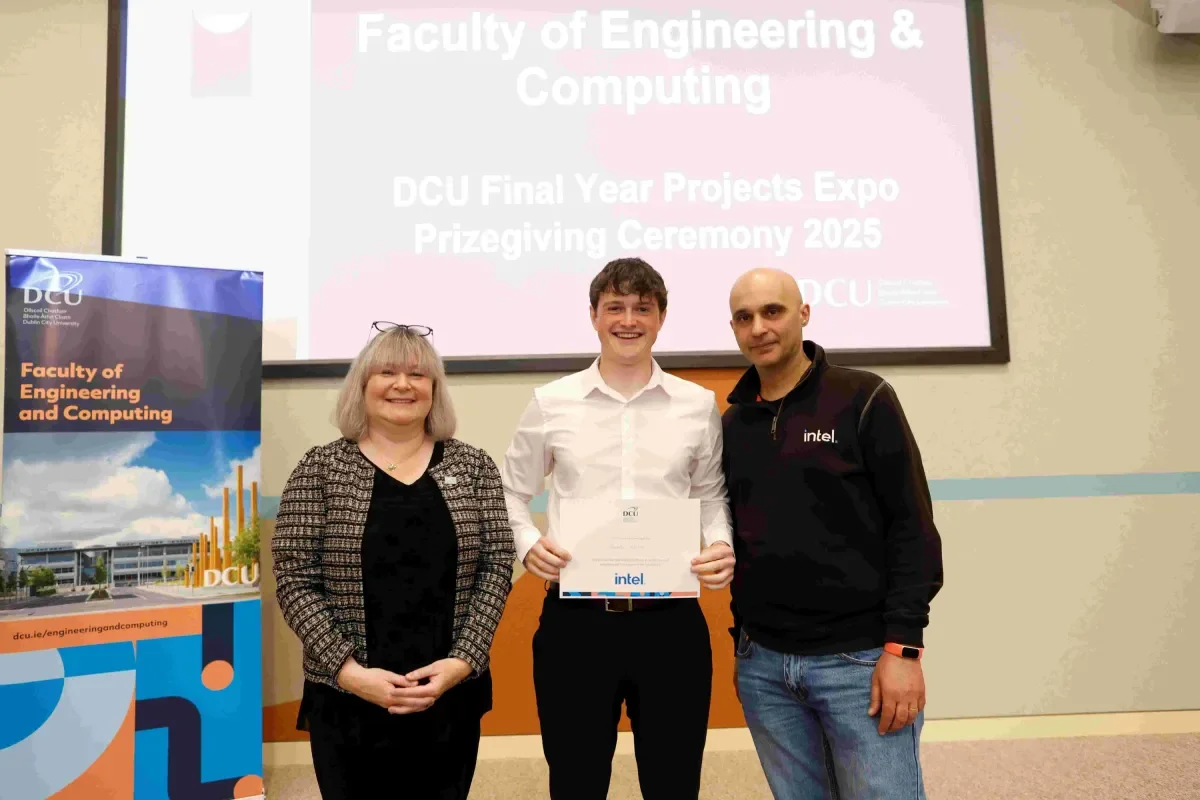

Intel's Best Engineering Project at Final Year Projects Expo 2025
Intel has generously sponsored the ‘Best Engineering Project’ at this year’s DCU Final Year Project Expo. Their first place prize was given to Gareth Quinn for his exceptional project ‘Computer Vision and Deep Learning Based Prediction for Automated Manufacturing Quality Control.’ This project explores the use of neural networks and deep learning for classifying the quality of inkjet-printed electrodes in an automated quality control (QC) station. By integrating image processing technology with neural networks, we improve classification accuracy and reliability. Images of inkjet-printed electrodes were analysed using a convolutional neural network (CNN) and a feedforward neural network, both optimised for maximum accuracy. This project demonstrates how advanced image processing and neural network optimisation enhance QC automation. By reducing manual inspection, this approach increases efficiency and ensures consistent product quality in manufacturing lines.
Joint second place was awarded to Afua Adu for her fantastic project ‘Converting IoT Sensor Data into Natural Language Summarisation Using Generative AI’, and Jake White for his amazing project ‘A Small Cell Based Solution for Indoor Navigation.’
Afua’s project aims to make complex IoT data more accessible by leveraging Generative AI to convert raw sensor outputs into user-friendly insights. It focuses on transforming intricate datasets, such as air quality and traffic data from Irish cities, into natural language summaries. These summaries will be delivered via an interactive chatbot, allowing users to engage and receive personalized responses. Instead of presenting dense tables of numerical data, the chatbot will generate concise, human-like summaries, such as, “Dublin recorded a good PM2.5 air quality reading of 10.6 μg/m³.” By simplifying the interpretation of IoT data, this project enhances public awareness in areas like urban planning, environmental management, and health. It fosters greater engagement with data, enabling both policymakers and citizens to make informed decisions.
Jake’s project is about developing localisation and navigation algorithms for indoor environments. It will be carried out using indoor access points (mini-indoor base stations). This would be useful in complex environments such as hospitals, airports and underground stations. The project involved the following; making a map of an indoor environment, generating a network of routes to navigate the map, and modeling the attenuation of a signal as it travelled from a transmitter to receivers (small cells) through the environment including obstacles such as walls in the map. The location of the transmitter was calculated by using path loss models and trilateration algorithms. Lastly, algorithms were used such as Dijkstra to find the shortest route to a desired location.
Congratulations to the three prize winners and thank you to Intel for sponsoring this prize.



